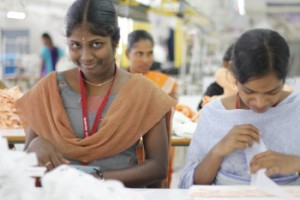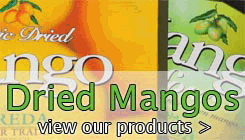How can the complex textile supply chain be made more fair? Since introducing Fairtrade certified cotton in 2005, Fairtrade International has been working to extend its approach to the entire textile value chain. Our approach to textiles aims to cover the entire value chain, including the often-overlooked weavers and dyers, so that they too can benefit from Fairtrade.
The end of April will mark two years since the collapse of Rana Plaza – yet no substantial improvements have been made for workers in the textile industry.
With over 20 years’ experience in advocating better working conditions for small producers and hired workers, Fairtrade International is now taking on the challenge of creating a comprehensive textile standard.
A finished piece of clothing is the sum of many individual steps, from spinning to weaving or knitting, to dyeing and decorating. Fairtrade’s goal is to improve the working conditions for everyone involved in textile production, at all stages in the chain.
The standard includes requirements relating to unionization and freedom of association, workers’ health and safety, and environmental regulations. The independent certifier FLOCERT will be responsible for monitoring these requirements. The Fairtrade approach goes beyond certification and monitoring to offer support and training to producers in developing countries.
From Minimum Wage to Living Wage
Fairtrade certified organizations have long been required to pay the respective national minimum wage or regional industry wage. Yet these often fall short of a sustainable income for workers. Fairtrade International has strengthened its requirements around living wage, which will be included in the new textile standard.
The draft version of the Fairtrade textile standard was developed in cooperation with various stakeholder groups. Last year mock audits were conducted with textile producers in India and South Africa to test this unique standard covering the whole supply chain.
A draft of the standard is now available for public consultation between March 9 and May 8: civil society organizations, producers, traders and experts are called upon to comment and contribute.
Which additional aspects need to be considered? Should anything be changed? As part of its multi-stakeholder approach, Fairtrade is asking experts, producers, traders and civil society to take part in the development of this standard. All comments will be collected and considered in further stages of development.


